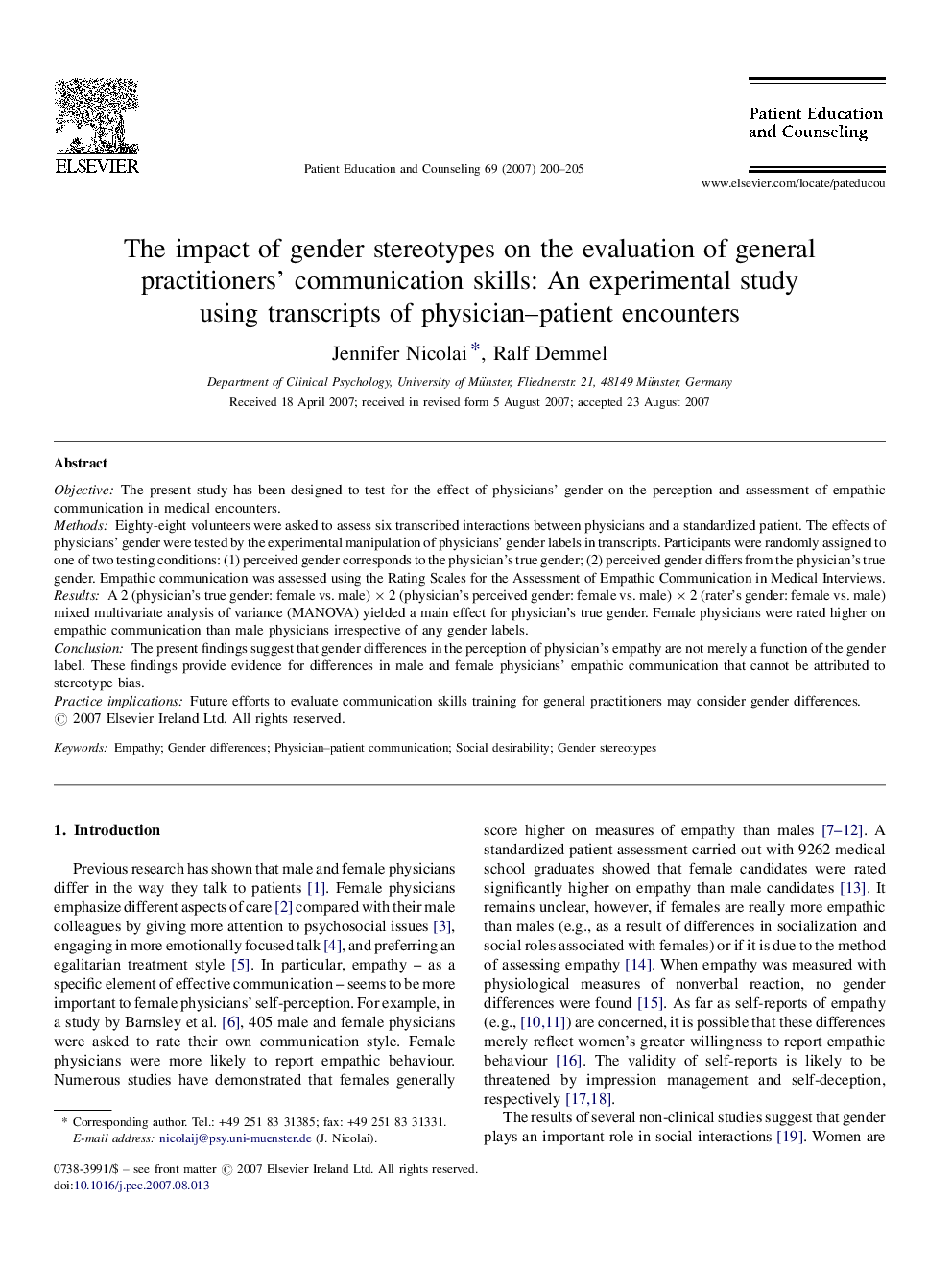| Article ID | Journal | Published Year | Pages | File Type |
|---|---|---|---|---|
| 3814377 | Patient Education and Counseling | 2007 | 6 Pages |
ObjectiveThe present study has been designed to test for the effect of physicians’ gender on the perception and assessment of empathic communication in medical encounters.MethodsEighty-eight volunteers were asked to assess six transcribed interactions between physicians and a standardized patient. The effects of physicians’ gender were tested by the experimental manipulation of physicians’ gender labels in transcripts. Participants were randomly assigned to one of two testing conditions: (1) perceived gender corresponds to the physician's true gender; (2) perceived gender differs from the physician's true gender. Empathic communication was assessed using the Rating Scales for the Assessment of Empathic Communication in Medical Interviews.ResultsA 2 (physician's true gender: female vs. male) × 2 (physician's perceived gender: female vs. male) × 2 (rater's gender: female vs. male) mixed multivariate analysis of variance (MANOVA) yielded a main effect for physician's true gender. Female physicians were rated higher on empathic communication than male physicians irrespective of any gender labels.ConclusionThe present findings suggest that gender differences in the perception of physician's empathy are not merely a function of the gender label. These findings provide evidence for differences in male and female physicians’ empathic communication that cannot be attributed to stereotype bias.Practice implicationsFuture efforts to evaluate communication skills training for general practitioners may consider gender differences.
